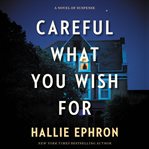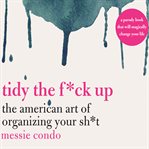Review by New York Times Review
Can clutter be glorious? Somewhere between the stuff of freak-show reality television (homes built like prairie-dog warrens, stacked high with newspapers and egg cartons) and Freud's carefully curated collections lies the apartment of Barry Yourgrau, who is tenuously balanced between hoarder and collector. His place is neither presentable nor truly horrifying, and yet it is closed to public view. It has become a source of insurmountable shame. Inspired by his embarrassment (and spurred on by his girlfriend, an easily identified food and travel writer whose pseudonyms throughout the book get a bit too cute), Yourgrau sets out to understand the literal and emotional weight of the objects we save. He is both subject and flâneur in this intimate world - and a gorgeous writer (a hoarder's home "didn't 'reek'; it was high-pitched and punky, intimately piercing. Like the whole place was one long-moldering ancient intimate flesh"). Wherever readers find themselves on his spectrum, there is much to recognize about how much sentimentality is wrapped up in the totems of our pasts. SARAH WILDMAN is the author of "Paper Love: Searching for the Girl My Grandfather Left Behind."
Copyright (c) The New York Times Company [November 15, 2015]
Review by Booklist Review
NYC writer Yourgrau is a lucky guy. He is much loved by the talented food critic, Cosima, who has given him her old place (in the same building) to use as a writer's studio while they eat and live in her more spacious place. But and a cluttered but it is he's somewhat of a hoarder, and Cosima, catching sight of the apartment after many years, wants the place cleaned. Yourgrau decides to write a book documenting the decluttering. Also documented are his treasures (bags, napkins, boxes, mementoes), the help he doesn't want (the mighty cleaner Zinaida, Dave the Declutterer, Clutterers Anonymous), and the memories behind many of the items. He quotes experts (studying his mess keeps him from cleaning it), and he ruefully admits that Susan Pearce, a theorist on collecting, points out that no one is interested in other people's souvenirs. Yourgrau's witty approach manages to keep most of that disinterest at bay. Even so, the bags and boxes do pile up, as do the excuses. Still, Yourgrau's honest, earnest attempts may ring bells with certain readers.--Kinney, Eloise Copyright 2015 Booklist
From Booklist, Copyright (c) American Library Association. Used with permission.
Review by Publisher's Weekly Review
Yourgrau explores the world of hoarding, in this confessional memoir about his experience as a recovering hoarder. After being confronted by his girlfriend about his overstuffed apartment, he sets out on a path to clean up his mess. Using many examples, he provides a panoramic view of the challenges, anxieties, and resources available for people with hoarding tendencies. Voice actor Brooke captures Yourgrau's proses quite effectively and translates his inner voice into a meaningful experience for listeners. Brooke masters the tone of each passage well, balancing reflections, confrontations, psychological jargon, anecdotes, and the tender moments, and the light rasp in his voices adds character to the narrative. He uses the right amount of emphasis to convey the more emotional aspects of Yourgrau's quest to understand and overcome this disease. A Norton hardcover. (Aug.) © Copyright PWxyz, LLC. All rights reserved.
(c) Copyright PWxyz, LLC. All rights reserved
Review by Library Journal Review
Yourgrau's (Haunted Traveler) girlfriend has given him an ultimatum: clean up your mess or else. A self-proclaimed "clutterbug," Yourgrau decides to document his journey of decluttering with before and after photos of his messes. The author goes on to examine pack rats and hoarders both real and fictional, from Mark Twain's Bleak House to the ancient Greeks. Talking with various shrinks, Ron the "disaster master," and Clutterers Anonymous, the author looks at the different reasons that people keep items and finally starts to chip away at his clutter. Narrated by Peter Brooke, who smoothly voices Barry, his girlfriend Cosima, and an abundance of secondary characters. VERDICT Folks who enjoy watching the television show Hoarders, especially those fascinated by the psychological underpinnings of the behavior, will find this an interesting listen.-Jessi Brown, Huntington City-Twp. P.L., IN © Copyright 2015. Library Journals LLC, a wholly owned subsidiary of Media Source, Inc. No redistribution permitted.
(c) Copyright Library Journals LLC, a wholly owned subsidiary of Media Source, Inc. No redistribution permitted.
Review by Kirkus Book Review
A memoir about decluttering an apartment. This isn't a how-to book providing a step-by-step program to overcoming clutter, though Yourgrau (Wearing Dad's Head, 1999, etc.) does chronicle his visit to Clutterers Anonymous, which the author didn't find particularly helpful except to provide comparisons with those worse off than he is. Mainly, the book is the result of an intervention by the author's girlfriend, whose success as a food critic contrasts sharply with the author's self-deprecating lack of achievement. Her intervention inspired his writing project, which is to chronicle his clean-up project, though he discovers along the way that "doing my Project actually gets in the way of my decluttering!" Yourgrau shares histories of famous hoarders, psychological theories about clutter and its relationship with OCD and PTSD, and plenty of family memories, some of which seem to be distorted, about his ambiguous relationship with his late parents, memories that his penchant for clutter helps keep alive. "I hadn't yet learned how to grieve properly," he concludes after relating the death of his mother, one of the more moving sections of the book. Yet through much of the narrative, the author seems to be stalling, procrastinating, and distracting himselfall symptoms of the hoarder yet occasionally as frustrating to readers as they must have been to his girlfriend. Not until Page 80 does he announce, "Now for actual cleaning"though, even then, not much gets cleaned too quickly. As the memoir progresses to the climactic dinner he will host and cook to share the livability of the apartment, where he was previously ashamed to admit visitors, he writes, "It had now been almost two years since my Project began." Yourgrau provides engaging company for most of that span, but the actual decluttering in the book might have taken less than a chapter. Copyright Kirkus Reviews, used with permission.
Copyright (c) Kirkus Reviews, used with permission.



